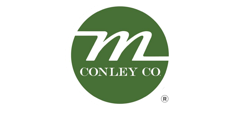Best Practices for Commercial Floor Care

Having clean, well-maintained floors is crucial for any business or commercial space. It's one of the first things people notice when they walk through the door, so you want to make sure it leaves a good impression. Plus, proper floor care helps them last a lot longer, saving you money in the long run. With some simple tips and tricks, you can keep your floors looking fresh and shiny for years to come.
But before we dive into specifics, there are some general floor care principles that apply no matter what type of flooring you have. To maintain commercial flooring you must minimize dirt, stains, and damage. You should clean any spills as fast as possible. Leaving them can lead to stains or irreparable floor damage. Adding mats to the entrances may also be beneficial, as they can help limit the amount of dirt brought inside.
You can’t trust your eyes to tell you when floors need cleaning. Invisible contaminants may be on surfaces that appear spotless. Adhering to an established cleaning schedule, rather than skipping based on appearances, makes sure consistent high standards are maintained.
Carpet care
Proper carpet care involves several key steps:
- Vacuum frequently to prevent premature wear and enhance indoor air quality. Aim to clean high-traffic areas daily and the entire carpeted area at least twice a week using a vacuum equipped with a HEPA filter.
- Promptly spot clean spills and stains using a clean cloth and a carpet-safe spot cleaner. Be careful not to rub the stain deeper into the carpet fibers.
- Schedule an annual professional deep cleaning to revitalize the carpet's appearance and prolong its lifespan. This process involves flushing the carpet with hot water and detergent to remove embedded pollutants that regular vacuuming cannot reach.
Spartan’s Contempo Carpet kit is a great fit for businesses to achieve these goals with all your carpet needs in an easy-to-transport tote. It includes a tamping brush/scraper, towel, sponge and stain remover guide. The RTU chemicals, or Qt bottles, have solutions for pet and foul odors, coffee, tea, paint, oil, red dye and rust stains, as well as protein spotting and H202 spotting solutions.
Hardwood floor care
Maintaining hardwood floors requires regular cleaning and periodic refinishing. Therefore, proper hardwood floor care involves these steps:
- Sweep or vacuum often using a hardwood floor vacuum attachment or a soft-bristle broom to remove dirt, dust and debris that can dull and damage the finish.
- Use a hardwood floor cleaner specifically designed for this surface, avoiding harsh chemicals, excessive water, wax, oil, or ammonia, as these can potentially harm the wood.
- When using a pH-neutral cleaner, carefully follow the dilution instructions to prevent streaks or watermarks.
Rubber floor care
Rubber flooring is commonly found in gyms and children's play areas. To keep your floor as good as new, follow these tips:
- Sweep and mop regularly to maintain its appearance.
- Avoid harsh chemicals or oils as these can deteriorate the rubber.
- Fix any loose edges to keep moisture from seeping underneath.
- To deep clean, use moderate-temperature steam cleaners to sterilize floors without damaging them.
- Using a small bristled brush can rejuvenate the rubber flooring.
Other Flooring
Commercial spaces often require durable, low-maintenance flooring that can withstand high foot traffic. Laminate is a popular choice due to its resilience and straightforward cleaning process, though it may warp if exposed to excessive moisture. For a more upscale look, various types of stone like slate, travertine, marble, and granite offer a wide range of aesthetic options. However, the cleaning requirements for stone floors can vary based on the specific material. Ultimately, the ideal commercial flooring depends on the intended use of the space and the level of maintenance the facility can accommodate.
Attention to detail and regular cleaning are essential for keeping business flooring tidy and looking as good as new. Whether the floor is made of stone, rubber, hardwood, laminate or carpet, regular deep cleanings that are customized for each kind of floor are necessary to get rid of stains/dirt and restore the surface's clean look. Businesses can protect their flooring, build a professional image, and leave a lasting impression on guests for years to come by adhering to these best practices.

